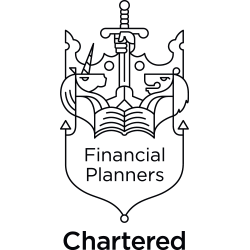How to purchase a car: The pros and cons to help you decide which route might suit you
The new “75” registration plate will be released this September, and you may be thinking about an upgrade.
Whether it’s a second car, a family upgrade, or a dream model you’ve had your eye on for a while, how you decide to make the purchase is just as important as what you buy.
There are several routes to car ownership – and each comes with benefits and drawbacks. So, the best fit for you will likely depend on your financial circumstances and future plans.
Here’s a full breakdown (the right kind!) of the most common car financing options to help you decide which is right for you.
Hand over the cash and buy your car outright
If you have the funds and want full ownership right away, being a cash buyer could be the simplest option.
Not only are there no monthly repayments or interest to worry about, being a cash buyer may allow you more opportunity to drive the price down and get a better deal.
| Pros of a cash purchase | Cons of a cash purchase |
| ✅ Full ownership from day one | ❌ High upfront cost |
| ✅ No interest or finance charges | ❌ Ties up capital you might need elsewhere |
| ✅ No mileage restrictions | ❌ No opportunity to build credit history |
| ✅ Greater flexibility when selling / trading in |
Before you splash the cash, remember that you may be parting with money that could be working harder for you elsewhere. As such, even if you’re pretty committed to this route, take some time to explore financing options.
And remember, unless you’re buying at the very top end of the car market, your shiny new vehicle will lose value the moment you leave the forecourt. So, be sure to factor this into your decision.
Take out a personal Loan
If you want to upgrade to a newer model but are keen to spread the cost, a personal loan from your bank or building society may be a good option.
Using a personal loan to buy your next new car could be an option if you want to be a cash buyer without leaving a dent in your capital.
Before you buy, you’ll also have a clear understanding of the terms of the loan – you’ll know how much you have to pay each month and how long it will take to repay in full.
| Pros of a personal loan | Cons of a personal loan |
| ✅ You own the car immediately
✅ Fixed monthly payments ✅ You could enjoy more competitive rates that you might get through car finance ✅ Allows more flexibility to buy from private sellers as well as dealerships |
❌ You’re liable for the full loan even if the car depreciates or breaks down
❌ You may miss out on “special deals” by not taking out car finance ❌ It may be less convenient to upgrade |
Before you commit, make sure you do the sums and ensure you secure the best deal on your personal loan. Finally, check your sums with care to be sure you won’t end up paying more interest than you’re comfortable with.
Go the slow-but-sure route with a hire purchase agreement
If you want to be sure you’ll own the car outright but don’t want to use a cash lump sum or take out a loan, a hire purchase (HP) agreement could be just the ticket.
With an HP arrangement, you should expect to pay a healthy deposit (usually around 10% of the full price). The rest of the cost will be paid through fixed monthly payments over a pre-agreed term.
Once all payments are complete, you’ll own the car.
| Pros of a hire purchase agreement | Cons of a hire purchase agreement |
| ✅ Useful if you want a newer car and wish to spread the cost
✅ Fixed interest and repayments ✅ Typically, a small payment at end of contract will allow you to own the car outright ✅ Generally no restrictions on how many miles the car can drive in the agreement ✅ You might find you pay less interest than you might with a personal loan |
❌ You won’t actually own the car until the end of term
❌ May be more expensive than a personal loan ❌ Less flexibility if your circumstances change ❌ Tricky to trade the car in for a newer model during the agreement ❌ Your car will depreciate over the course of your agreement ❌ The car can be repossessed if you miss payments |
In effect, HP is a loan secured against the car. So, if you fail to make your monthly payments, the finance company can take the car.
While you get to drive the car – and pay all the running and maintenance costs – the company will own the car until you reach the end of the contract.
An HP agreement has three components:
- Deposit – that you pay at the start of the contract
- Monthly payments – covering both the value of the car and interest
- A final “option to purchase” payment – that allows you to full ownership of the car.
If you have enough savings to be able to buy a car with cash, this may still be the better option, as you’ll own the car immediately and won’t end up paying any interest.
Enjoy choice and flexibility with a Personal Contract Purchase
As with a personal loan or hire purchase, buying your next car with a Personal Purchase Contract (PCP) lets you spread the cost over a period of time.
You’ll pay a deposit (usually around 10% of the value of the car) and then make monthly payments throughout the agreed term.
At the end of the contract, you have three options:
- Give the car back if you no longer need it
- Trade the car in for a new one (with a new finance agreement)
- Pay a lump sum to buy the car outright – this “balloon payment” is set by the finance company at the start of the deal and is based on an estimated value of the car at the end of the contract.
| Pros of a Personal Contract Purchase | Cons of a Personal Contract Purchase |
| ✅ Can be a good way to get a newer car with lower monthly payments
✅ No commitment to pay back the full value of the vehicle ✅ You’ll be paying towards ownership of the car (if you opt to buy it at the end of the contract) ✅ You could use some equity to take out a new PCP at the end of the contract ✅ You may find you pay less interest than you might with a personal loan ✅ You have flexible choices at the end of the term ✅ Ideal if you want a new car every few years |
❌ If you decide not to buy the car, the deal effectively becomes a hire
❌ May be more expensive than leasing and you could end up paying a lot of interest ❌ Mileage and condition restrictions apply, and you’ll have to check if you can take the car abroad ❌ Should you decide not to buy the car, the deal effectively becomes a hire ❌ If your circumstances change, you’ll have to keep up your repayments ❌ It’s easy to fall into a cycle of changing your car every few years to avoid the balloon payment |
PCP is one of the most popular finance options in the UK. It may be a good option if you like to change your car every few years.
While it can allow some valuable flexibility, contracts can be complicated, so make sure you read and understand all the small print before you sign on the dotted line.
Stay footloose and fancy free by leasing a car
If you want a car without the hassle of ownership, leasing your car could be the right fit.
Leasing is similar to renting a car but over a longer term. You’ll pay a fixed monthly fee for a set period, and return the car to the dealership on a pre-set date.
As long as you don’t become too attached, this could be ideal – especially considering that maintenance is often included.
|
Pros of leasing a car ✅ No worries about depreciation or resale ✅ Often includes servicing and maintenance ✅ Simple to budget for known fixed costs ✅ Drive a new car every few years
|
Cons of leasing a car
❌ You never own the car ❌ You’ll need to adhere to strict mileage limits and other conditions ❌ Potential charges for excess wear or if you wish to return the car early ❌ Not cost-effective if you want long-term ownership |
If you value convenience but like to change your car regularly and typically drive only a few hundred miles each year, leasing could be worth considering.
Which route is best for you?
As with so many decisions in life, there’s no straightforward one-size-fits-all answer.
What’s best for you will depend on multiple factors, including:
- How long you plan to keep the car
- How much you drive annually
- Your available deposit or savings
- Whether you want to own the car.
Buying a car is a big financial decision.
Before signing any agreement, it’s crucial to compare all options and understand the full cost – not just the monthly payment.
Get in touch
Whatever your circumstances, we’d be happy to chat about your options and discuss which route may be suitable for you.
Email info@logicfinancialservices.co.uk or check with your adviser.
Please note
This article is for general information only and does not constitute advice. The information is aimed at retail clients only.
All information is correct at the time of writing and is subject to change in the future.

